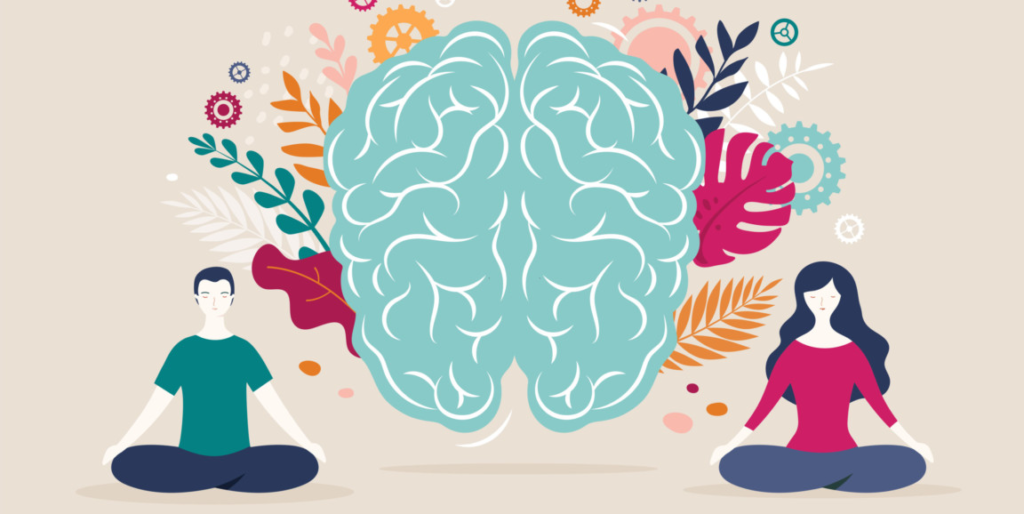
Taking care of your mental and emotional well-being is just as important as looking after your physical health. A healthy mind and strong emotions can help you lead a more balanced, happy life. Here’s a straightforward guide to improving your mental and emotional health.
1. Understand Your Emotions
It’s normal to feel a range of emotions, from happiness and excitement to sadness and anxiety. Recognize and acknowledge what you’re feeling instead of pushing emotions away. This can help you understand yourself better and manage your feelings more effectively.
2. Practice Mindfulness
Mindfulness means being fully present in the moment. It can help reduce stress and improve your mood. Simple ways to practice mindfulness include:
- Deep Breathing: Take slow, deep breaths to calm your mind.
- Meditation: Spend a few minutes each day sitting quietly and focusing on your breath.
- Gratitude Journaling: Write down things you’re grateful for each day to focus on positive aspects of your life.
3. Manage Stress
Stress is a part of life, but how you handle it makes a big difference:
- Take Breaks: Short breaks throughout the day can help you recharge and reduce stress.
- Exercise: Physical activity releases endorphins, which are natural mood lifters.
- Relaxation Techniques: Try activities like yoga or listening to calming music to unwind.
4. Stay Connected
Building and maintaining relationships is crucial for emotional health:
- Talk to Friends and Family: Share your thoughts and feelings with loved ones. Sometimes, just talking can make a big difference.
- Join Groups or Clubs: Being part of a community can provide support and help you feel connected.
5. Set Realistic Goals
Setting goals gives you a sense of direction and purpose, but it’s important to make them realistic:
- Start Small: Break big goals into smaller, manageable steps.
- Celebrate Achievements: Acknowledge and celebrate your progress, no matter how small.
6. Seek Help When Needed
If you’re struggling with feelings of sadness, anxiety, or other emotional challenges, don’t hesitate to seek professional help:
- Talk to a Counselor or Therapist: These professionals can provide guidance and support.
- Reach Out to Support Groups: Many communities offer groups where you can talk with others who understand what you’re going through.
7. Take Care of Your Physical Health
Your body and mind are closely connected:
- Eat Well: A balanced diet can positively affect your mood and energy levels.
- Exercise Regularly: Physical activity boosts mental health and reduces stress.
- Get Enough Sleep: Quality sleep is essential for emotional balance and overall well-being.
8. Find Enjoyable Activities
Engaging in activities you love can boost your mood and provide a sense of accomplishment:
- Hobbies: Whether it’s painting, gardening, or playing a sport, find activities that bring you joy.
- Relaxation: Spend time doing things that help you relax and feel good, such as reading a book or taking a walk.
9. Learn to Manage Your Time
Good time management can help reduce stress and give you more control over your life:
- Make a Schedule: Plan your day or week to stay organized and avoid feeling overwhelmed.
- Prioritize Tasks: Focus on important tasks first and don’t be afraid to delegate or ask for help.
10. Be Kind to Yourself
It’s important to practice self-compassion and be gentle with yourself:
- Avoid Perfectionism: Accept that it’s okay not to be perfect. Everyone makes mistakes and has setbacks.
- Self-Care: Take time to do things that make you feel good and take care of yourself.
Conclusion
Your mental and emotional well-being is a vital part of a healthy and happy life. By practicing mindfulness, managing stress, staying connected, and seeking support when needed, you can build a strong foundation for emotional health. Remember, it’s okay to ask for help and take time for yourself. Start with small changes and be patient with your progress. Taking care of your mind is just as important as taking care of your body, and both contribute to a balanced and fulfilling life.
Feel free to share your own tips for mental and emotional well-being or reach out if you have questions. Here’s to a healthier, happier you!
